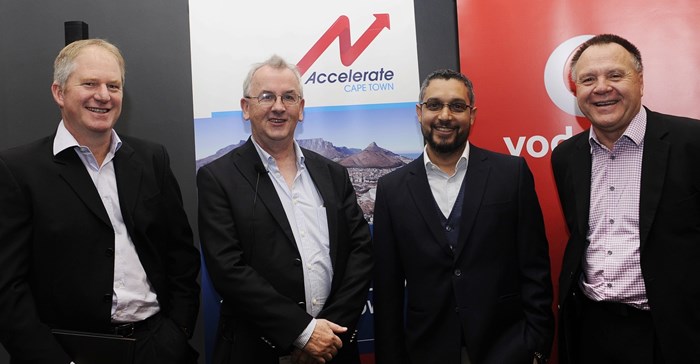City of Cape Town: businesses invited to collaborate and capitalise on fibre network

The City of Cape Town plans to spend R185 million in the current financial year on its broadband initiative. The City and Province has additional funding to support digital initiatives from the Western Cape Government of R11.8 million for broadband infrastructure and R23.7 million for their Digital Inclusion Project (wi-fi). 180 new Wi-Fi access points were introduced in 2014/15 and a further 120 points will follow by year-end.
Ryan Ravens, CEO of ACT - a business leadership organisation that represents the largest corporates in the Western Cape - said: "Cape Town, with its population of 3.7 million, is growing at 2.6% per annum. As such, we are the city with the highest urbanisation rate in SA. In order to create a stable and conducive business environment, we need to find creative ways of accelerating inclusive growth and to work more carefully with our resources. The case for business to become involved is compelling and, from a socio-economic perspective, we also know that a 10% increase in broadband penetration can generate 1.3% growth in GDP.
"By putting the broadband infrastructure in place, the City has optimised the environment for private sector involvement by providing the backbone infrastructure. And by extending this invitation to business to become involved in the provision of related products and services to citizens, we are presented with an excellent opportunity to help transform Cape Town into a smart city."
Talent
To facilitate this process, Ravens and his team are also addressing key inhibitors of which the skills shortage is considered the greatest. "The private sector remains constrained by a dearth of relevant skills in general and, in the case of Digital Cape Town, of software engineers, data scientists, and JAVA and .Net developers in particular. We are engaging with the region's universities and educational institutions to raise awareness, ensure collaboration with the private sector, and address this issue at foundational level." Ravens said.
Further to a free Wi-Fi service, the organisation's members identified open data, smart (online) systems (for the settlement of bills, fault logging, etc.), and IT infrastructure access for educational institutions, as the smart city initiatives to be prioritised.
About 30,000 residents currently access the City's Wi-Fi network and a tender for the provision of Wi-Fi on MyCiti buses, has recently closed. According to Stelzner, this is a highly specialised area. He says: "The construction of dedicated wireless data transmission infrastructure along bus routes is very expensive and can at best be justified along very high occupancy routes. The alternative is dependent on good LTE mobile data services from mobile operators. It is this mobile data service that will then be used for transmission between a moving bus and a terrestrial base station."
Collaboration
Large multinational organisations, with their research and development capabilities and ready access to global best practice, are often well placed to help find viable solutions to complex technical challenges. In summarising his presentation at the event, Damien Callaghan, Senior Director for Solution Development at the Internet of Things Group at Intel, told the audience:
"There is no clear definition of a smart city yet. This means that you have an opportunity to define - and realise - it in Cape Town. When doing so, start on projects that present the least resistance. Always be clear on who "owns" the data and who can licence the use of it. Articulate the Rand value and "soft" returns upfront and, perhaps most importantly, understand that you cannot do this alone. Create a small group of eco-system partners who align with you on this journey."
A collaborative approach will be central to unlocking the full potential of the City's fibre network, Ravens, agreed. "This was our first forum in a series aimed at facilitating engagement between business and the City as we work to transform Cape Town into the progressive, smart and inclusive city it has every potential to be. Our next session will be smaller and focused on generating ideas on how the private sector can help.













